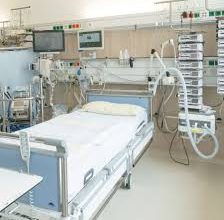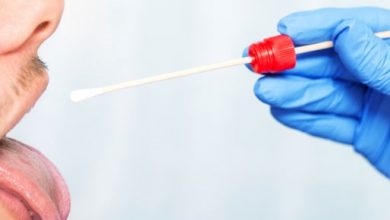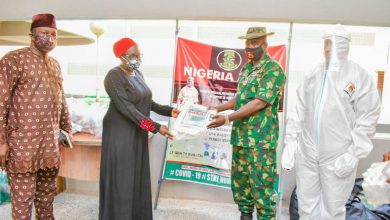
United Nations calls for investment on sanitation in Nigeria
The Water Sanitation and Hygiene (WASH) United Nations Children’s Fund, (UNICEF) Nigeria, has called for an investment in sanitation and an increase in the WASH budget, as an avenue to promote Nigerian’s physical hygiene.
Penpushing reports that Dr Jane Bevan made the call in her keynote address at the 2023 International Conference on Environmental Law and Governance for Sustainable Development, held at the Olusegun Obasanjo Presidential Library, Abeokuta.
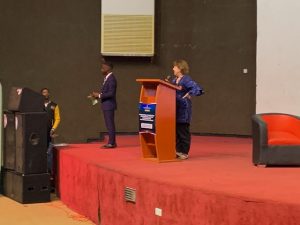
The conference with the theme, Ensuring Water, Sanitation and Hygiene for All: Principles and Strategies for Accelerating Change, was organized by the Green and Sustainability Unit of the Olusegun Obasanjo Presidential Library (OOPL) in commemoration of 2023 World Toilet Day.
Penpushing further reports that Bevan delivering her keynote address noted that sanitation is generally underfunded, adding that Water Sanitation and Hygiene (WASH) is not prioritized hence the portion given to it has dropped drastically in the past years.

‘There is a lack of investment in WASH, its not like there is isn’t money but it is the prioritization. Wash should be made important. The portion given to WASH has been dropping drastically in the past years, this is important, funds need to be channeled to it’, she added.
Penpushing also reports that Bevan disclosed that Jigawa state was able to emerge number one, free from open defecation because it spent more than double the average of WASH budget on sanitation and that was how they were able to become an open defecation free state, and bemoaned the poor state of sanitation and hygiene in health care facilities and schools across the country.
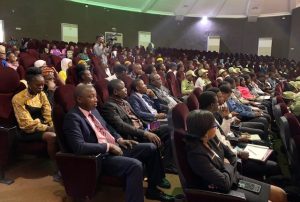
‘On Washing institutions, I mean when you first learned of watering sanitation that should be in schools right unfortunately, only 11 percent of all of the schools in Nigeria have sufficient watering sanitation only 11 and that’s quite shocking. I want to emphasize that more some have water, some have sanitation but to have whole range of water sanitation and hygiene that means hand washing, menstrual hygiene for girls it’s only 11 percent’.
‘And even in health centers this is worst. It is where you go when you’re sick because you don’t want to get sicker but unfortunately the sanitation situation in many primary health care facilities means that there is a chance of getting sicker because there is no sufficient hygiene and sufficient sanitation’.
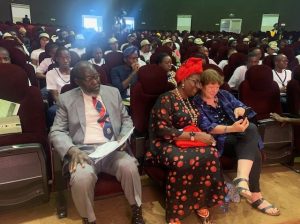
Penpushing reports that she noted that Water Sanitation and Hygiene (WASH) only 8percent of people actually wash their hands at the proper time, while findings showed that 99 percent of people know they should wash their hands after using the toilet, getting back home from work, shaking people but contrary is the case.
The keynote speaker while emphasizing that Nigerians know the right things to do but choose the wrong described hand washing as the cheapest means of staying healthy and urged everyone to consider washing their hands more often and at the critical times.
‘We all know we should be doing it but we are not doing it and hand washing is the simplest, less cost-effective vaccination in the world to save us from diseases gotten from the outside when we touch people, door handles staircase and the like’.

Penpushing further reports that she pointed out that in the next five years 50 percent of Nigeria wash facilities will become nonfunctional as it lacks sustainability, adding that another aspect of the norm as recorded by the National Community Mapping is the sustainability check
‘Another aspect of the norm as recorded by the National Community Mapping is the sustainability check. It means whether these things are going to last and unfortunately the sustainability of WASH facilities in Nigeria is not looking very strong’.
‘This contains number of things to be consider functionality, water quality, management, we are less than 50 percent sustainable and that means in five years’ time 50 percent of our wash facilities will not be functional. So we can keep making new ones if we like but unless we learn how to fix and maintain the ones we’ve got and look out for them we are never going to achieve full coverage’.
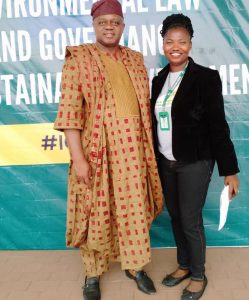
Penpushing also reports that convener of the conference, Dr Adenike Akinsemolu, stated that there are 2.2billion people who do not have access to good drinking water and 700 children under the age of five die everyday from diseases.
The Head of Sustainability Unit of the Olusegun Presidential library and Director of the Green Institute however urged Nigerians to intensify their effort and innovate solution to curb the menace., stressing importance of water hygiene
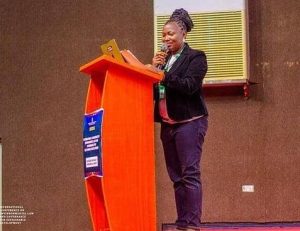
‘We need a world where water hygiene and the rest are fully available. We have 2.2billion people who do not have access to good drinking water and 700 children under the age of five die everyday from diseases. Yes i know we are trying out best but it is not enough we are yet to reach our target. So let us all put in more effort and innovate solution to curb the menace’, she stated.
Penpushing reports that the Special Guest of Honour, Chief (Mrs) Bola Obasanjo in her remarks urged all to maintain cleanliness and hygiene, recalling that getting water from the stream in old days wasn’t hygienic
‘Getting water from the stream in those days wasn’t hygienic. We thank God for technology and social life as things has changed a lot. Sanitation is very important, good water is very good for us. We all should maintain cleanliness in our hygiene, because what you eat and drink represents who you are’, Obasanjo added.
Penpushing further reports that sideline of the well-attended educative and colourful event included panel sections discussing effects, strategies and possible solutions to the menace.
FOOTNOTE: You want to share story with us? You want to advertise with us? You need publicity for product, or service, or event? Contact us on WhatsApp +2348073463653 or email penpushing@yahoo.com



